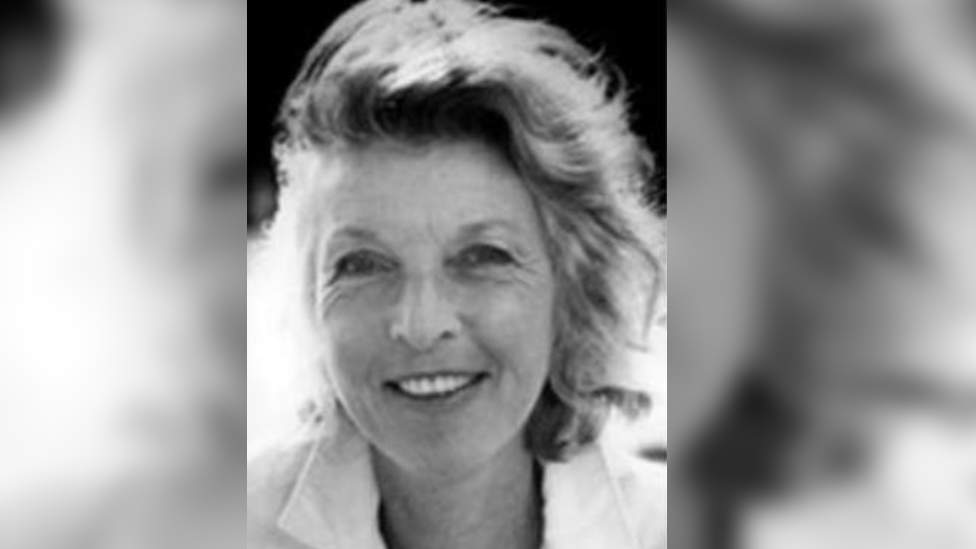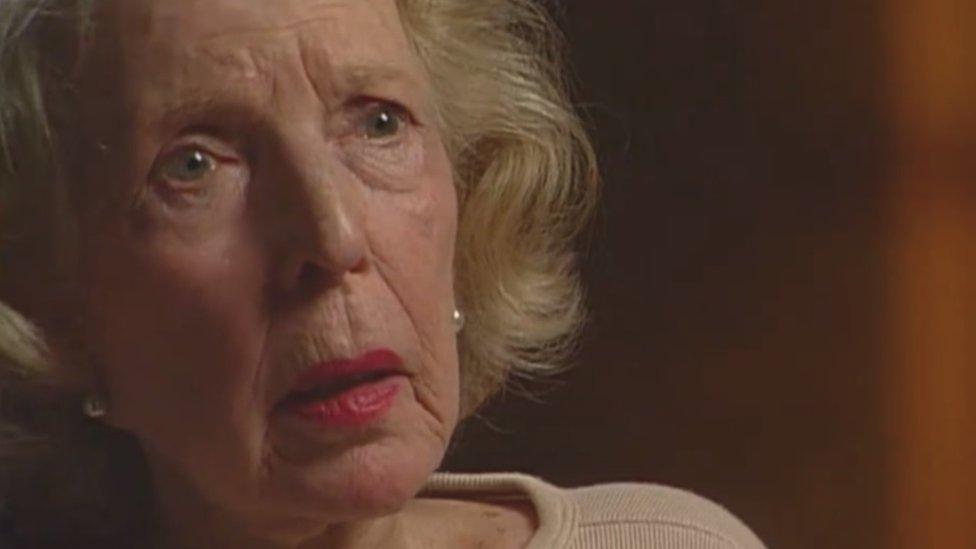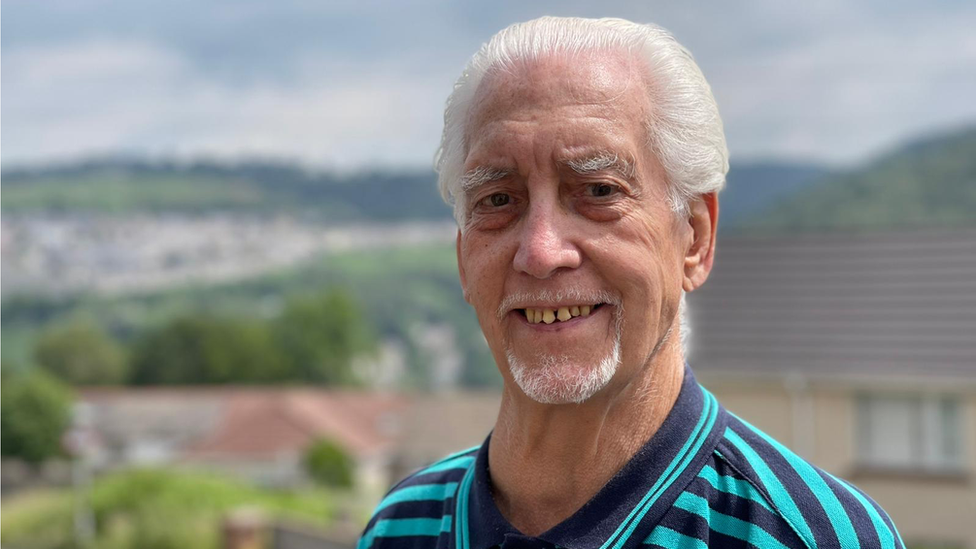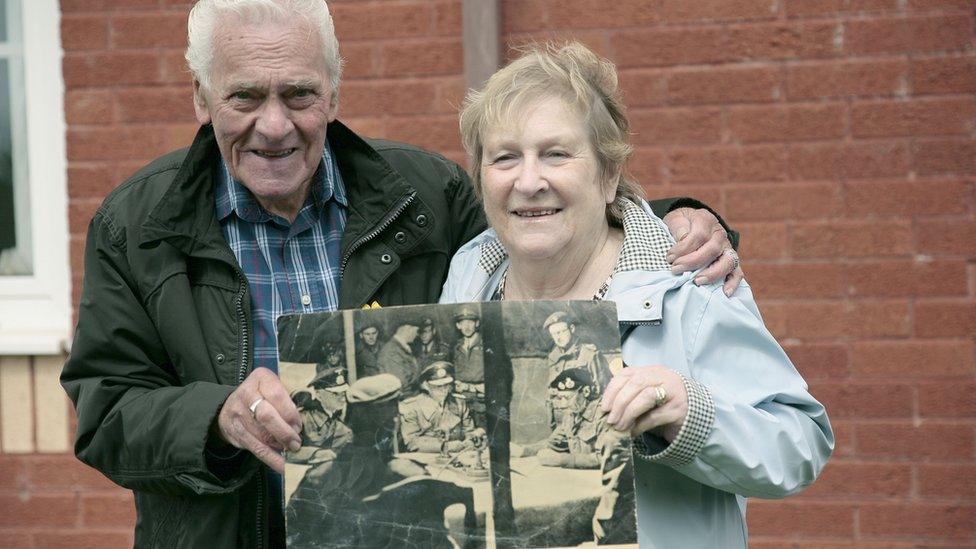Reporter Martha Gellhorn honoured with purple plaque
- Published

Martha Gellhorn covered 12 conflicts in a career spanning six decades
Pioneering war reporter Martha Gellhorn has been honoured with a plaque at her former home in Monmouthshire.
Ms Gellhorn, who died in 1998, covered 12 conflicts in a career spanning six decades.
At the age of 76, she came out of retirement to report on the miners' strike from Newbridge in 1984.
It was the sixth purple plaque to be erected in Wales, marking the achievements of women from all walks of life.
Ms Gellhorn was already a published writer when she visited Madrid during the Spanish Civil War in the 1930s with her future husband, Ernest Hemingway.
Once there, she began reporting on the plight of civilians in the besieged city and from then on, her work always focused on the ordinary people affected by conflict and hardship.
"I began to write about what happens to what we now call real people, and perhaps that was different," she told the BBC's HARDtalk programme in 1997.
"Nobody else was doing it because that wasn't the thing, I mean the thing was to rush out and say whether somebody had advanced or retreated.
"Even when I began writing about any of the soldiers, it was always as people."
Ms Gellhorn was the only woman reporter at the D-Day landings. Having been refused accreditation, she got there by stowing away in the toilet of a hospital ship until it set sail.
She went ashore with medics to help bring back the wounded and reported on what she saw and heard.

Martha Gellhorn was present shortly after the Dachau concentration camp was liberated - an experience she says always haunted her
Ms Gellhorn wrote about the Dachau concentration camp shortly after it was liberated in one of the 20th Century's most famous pieces of reportage.
She told HARDtalk it was an experience which always haunted her.
"It was just so much more cruel than war. Here were people being kept in conditions of inhumanity and slavery and cruelty such as I had never even imagined possible, let alone seen.
"I didn't exaggerate it. I just described it."
The miners' strike
In one of her last assignments she went to Newbridge to write about the miners' strike in 1984 and returned there years later at the age of 88 for a BBC documentary.
On both occasions, former miner Alan Sandel drove her around the area.
"I heard via the grapevine that she was feisty, no way was she feisty with me," he said of their first meeting.
"She was a proper lady and the aura that she gave… was that she would care about the everyday person. She would really go that extra mile for them as far as I can remember.
"It was a very enjoyable day and a privilege to have met her."
Mr Sandel made quite an impression on Ms Gellhorn too - in her article on the strike, she describes him as a "charming grey-haired miner" who speaks of the beauty of the Ebbw valley.

Alan Sandel says it was a privilege to have met Martha Gellhorn
When reminded of this, Mr Sandel chuckles: "I always admire people who speak the truth."
Ms Gellhorn paid tribute to the people of Newbridge at the end of the documentary.
"It has been wonderful to spend two days with good people, that was my feeling about them 13 years ago and it's my feeling now. These are genuinely, simply, unpretentiously, unselfconsciously good people."
American by birth, Ms Gellhorn lived in Europe for most of her life and for many years, had a cottage near Devauden in Monmouthshire, which provided sanctuary from the chaos and conflict she reported on.

A purple plaque has been unveiled at the cottage
Now a purple plaque has been unveiled there in her honour.
Ms Gellhorn's stepson, Alexander Matthews, attended the unveiling ceremony.
"Martha Gellhorn came to this lovely spot in Wales to recharge her emotional batteries. She loved the magic of being alone. There was a kind of independence about it, which she thoroughly enjoyed," he said.
"She wanted to be known as a fiction writer but had ended up being perhaps the best-known foreign correspondent of her generation."

NOTHING BEATS THE 70S: Mike Bubbins takes on the challenge of another epic decade
RADIO WALES ART SHOW: Nicola Heywood Thomas explores new summer productions across Wales

Related topics
- Published1 May 2020

- Published10 May 2020

- Published27 February 2021
